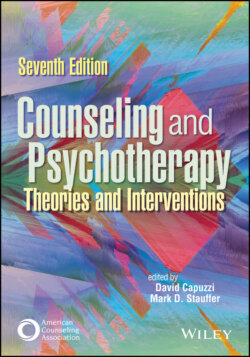Читать книгу Counseling and Psychotherapy - Группа авторов - Страница 77
RCT as Social Justice and Multicultural Counseling
ОглавлениеFrom a multicultural and social justice perspective, counselors acknowledge the very real covert and overt experiences of disenfranchisement, racism, classism, sexism, and heterosexism that people experience acutely and chronically (Flores & Sheely‐Moore, 2020; Jordan & Hartling, 2008; Singh et al., 2020; Singh & Moss, 2016). Cultural and societal messages propagated by dominant social groups define mental health and deviance. When these embedded narratives enter counseling sessions, counselors and clients can unwittingly engage in the suppression of a client’s authentic experiences and pain while reinforcing the dominant messages that maintain the privilege of the dominant group (Jordan & Hartling, 2008). As evidenced by Hook et al.’s (2016) research, most counselors engaged in microaggressions in counseling with Black, Indigenous, and other people of color, which undermined the potential for true relational healing. Hook et al. found that although a counselor’s multicultural competence reduced microaggressions, a counselor’s level of cultural humility emerged as the strongest predictor of microaggressions in counseling practice. When clients rated their counselors lower on cultural humility, they also noticed that their counselor avoided discussing or minimized cultural issues and racism in counseling, directly and indirectly expressed cultural stereotypes, and denied their own potential biases.
RCT provides counselors with a conceptual framework to address the core issues in working with both marginalized and privileged groups. RCT places the concepts of power and dominance in society and the resultant dehumanizing narratives that flow from these social structures at the forefront of the counseling process. RCT advocates for the use of power that equalizes and honors clients with diverse experiences and identities. RCT honors a client’s experiences, recognizes the damaging effects of disconnections in relationships, and supports the healing power of mutually supportive and growth-promoting relationships that foster equality and healing.
